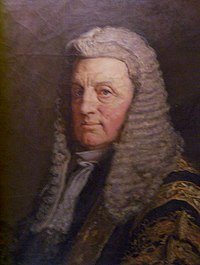William Brett, 1st Viscount Esher
|
The Right Honourable The Viscount Esher PC QC |
|
|---|---|

Lord Esher by John Everett Millais.
|
|
| Solicitor-General | |
|
In office 10 February 1868 – 16 September 1868 |
|
| Monarch | Victoria |
| Prime Minister | Benjamin Disraeli |
| Preceded by | Sir Charles Jasper Selwyn |
| Succeeded by | Sir Richard Baggallay |
| Master of the Rolls | |
|
In office April 1883 – 1897 |
|
| Monarch | Victoria |
| Preceded by | Sir George Jessel |
| Succeeded by | Sir Nathaniel Lindley |
| Personal details | |
| Born | 13 August 1815 |
| Died |
24 May 1899 (aged 83) London, England |
| Nationality | British |
| Political party | Conservative |
| Spouse(s) | Eugénie Mayer (1814–1904) |
| Alma mater |
King's College London Caius College, Cambridge |
William Baliol Brett, 1st Viscount Esher PC, QC (13 August 1815 – 24 May 1899), known as Sir William Brett between 1868 and 1883, was a British lawyer, judge, and Conservative politician. He was briefly Solicitor-General under Benjamin Disraeli and then served as a justice of the Court of Common Pleas between 1868 and 1876, as a Lord Justice of Appeal between 1876 and 1883 and as Master of the Rolls. He was raised to the peerage as Baron Esher in 1885 and further honoured when he was made Viscount Esher on his retirement in 1897.
Brett was a son of the Reverend Joseph George Brett, of Chelsea, London, by Dorothy, daughter of George Best, of Chilston Park, Boughton Malherbe, Kent. He was educated at Westminster School, King's College London and at Gonville and Caius College, Cambridge. Brett rowed for Cambridge University Boat Club against Leander Club in 1837 and 1838, then in the victorious Cambridge crew against Oxford University in the 1839 Boat Race.
Called to the Bar in 1840, Brett went to the northern circuit, and became a Queen's Counsel in 1861. On the death of Richard Cobden in 1865 he unsuccessfully contested Rochdale as a Conservative, but in 1866 was returned for Helston in unique circumstances. He and his opponent polled exactly the same number of votes, whereupon the mayor, as returning officer, gave his casting vote for the Liberal candidate. As this vote was given after four o'clock, however, an appeal was lodged, and the House of Commons allowed both members to take their seats.
...
Wikipedia
